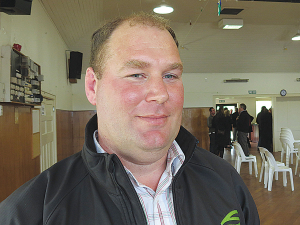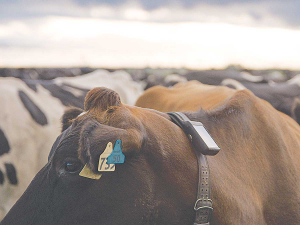OPINION: Federated Farmers is right on board with the purpose and framework of the Zero Carbon Bill, but not a methane target that has no grounding in science or economic sense.
Criticism by New Zealand First that Feds is being unreasonable with its comments on the flaws in the Zero Carbon Bill’s targets is of concern. Federated Farmers welcomes the opportunity to sit down with NZ First and work through these issues.
Let’s be clear. We support the Labour/NZ First/Green proposals to establish a framework to tackle global warming and we’re grateful for NZ First’s continued efforts to get a fair deal for the agricultural sector on a number of fronts.
While we appreciate the coalition government has taken a two-basket approach to greenhouse gases, Federated Farmers is adamant that the methane targets are unjustified and Herculean compared to what’s expected of other sectors.
We’ll take the net zero nitrous oxide by 2050 target on the chin and we’ll work with other New Zealanders to get carbon dioxide to net zero as well.
The primary sectors requested a split gases approach so that the significantly different effects of short lived gas (methane) could be recognised from the long lasting and cumulative global warming effect of long lived gases (nitrous oxide and carbon dioxide).
The Zero Carbon Bill sets a gross biogenic methane reduction of 10% by 2030.
The science is clear that this level of methane emission reduction is only needed by 2050 to have no additional impact on global warming. Yet farmers are being expected to shoulder their share of tackling climate change 20 years earlier than anyone else.
The second target, a 24% - 47% reduction of methane by 2050, has been plucked out of two heavily caveated reports with a large number of scenarios.
All of these scenarios – except one – involve new technologies not yet available. Or they involve a technology the government does not support: the use of genetic engineering.
The one exception involves retrenchment from pastoral farming. The only significant option currently available to NZ livestock farmers to reduce methane emissions is retrenchment – to feed less to their animals.
The 24% - 47% by 2050 target equates to about 1% - 2% per annum reductions – three to six times greater than necessary for methane to reach carbon zero equivalent.
The livestock sector wants to do its part. Food produced in NZ already has one of the lowest greenhouse gas footprints in the world. Our dairy products have a footprint (greenhouse gas per kilogram of milk solids) that is one third of many European competitors.
Targets by companies such as Fonterra and Synlait to reduce emissions per kilogram of milk solids by a further 30% should not be confused with the still elusive but laudable goal of reducing gross methane emissions per farm without winding the industry down.
We are supportive of the Zero Carbon Bill but not methane targets that will ravage farmer livelihoods, provincial communities and the national economy.
• Andrew Hoggard is Federated Farmers climate change spokesman











